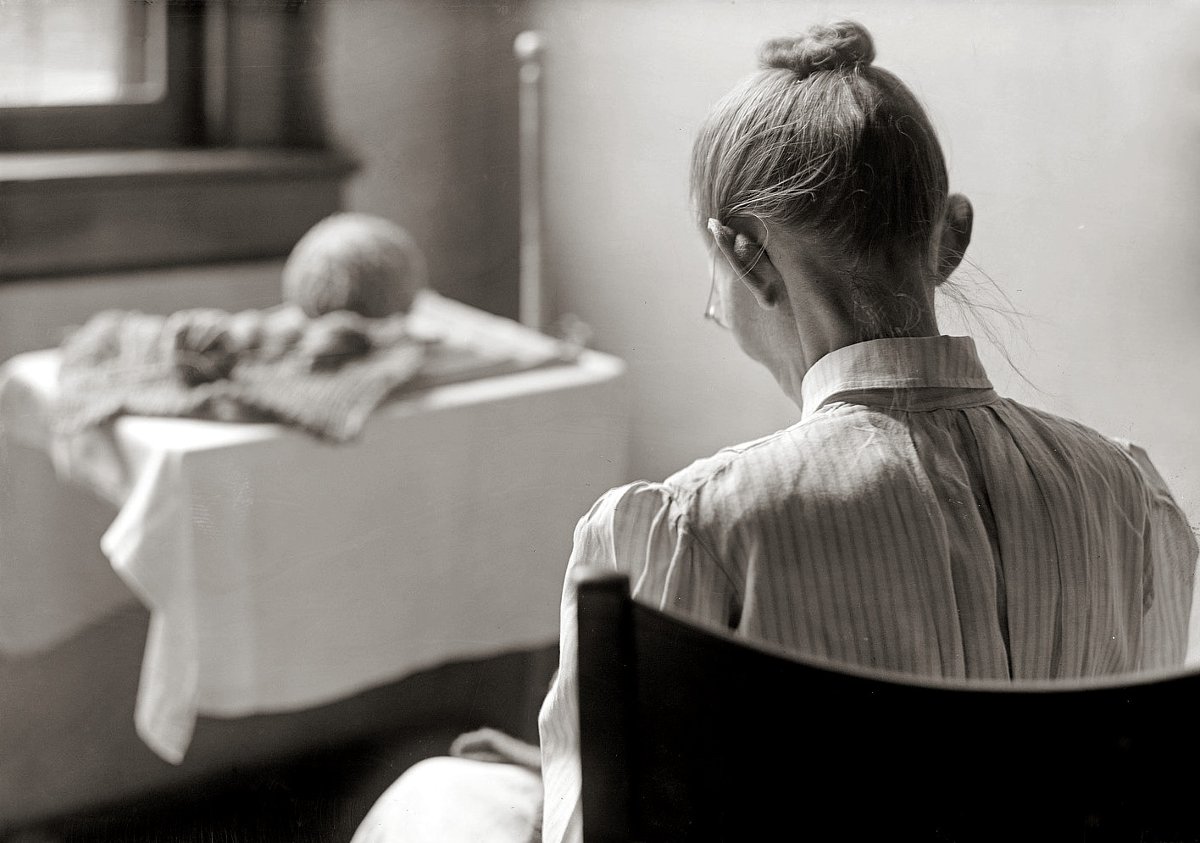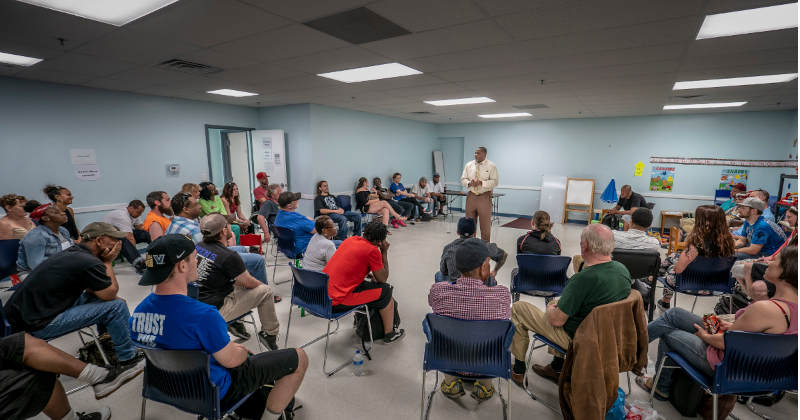In the arms of the angel
Fly away from here
From this dark cold hotel room
And the endlessness that you fear
You are pulled from the wreckage
Of your silent reverie
You’re in the arms of the angel
May you find some comfort here
So tired of the straight line
And everywhere you turn
There’s vultures and thieves at your back
The storm keeps on twisting…—Sarah McLachlan

Crawl into this experience. Feel it. You have a mentally ill brother who has been tormented by his disease for over 50 years. He has suffered from delusions and voices his whole life.
He claims he knows Deep Throat. He is convinced that the FBI has implanted listening devices in his brain and in his teeth. He believes his parents are clones, and he is not sure who is real and who isn’t. He is terrified that people are monitoring him and spying on him. Thus, he is very suspicious of his brother-in-law (me) who was a spy in the Army and so can’t really be trusted. You know your brother is more than his disease. He has a brilliant mind, a gentle soul, and highly evolved musical talent. He is a voracious reader, listens to classical music by the hour, plays multiple instruments, and has a wonderful sense of humor. But even his talents conspire to torture him. He is good enough to open for famous bands, but he believes he wrote the music for several Beatles songs and Mozart symphonies. He reads a vast range of literature and is able to recall random facts, but he is unable to connect the dots and create a rational world-view. He makes friends, holds jobs, and functions independently; but his illness undermines his relationships and he ends up jobless with a few good friends.

Your devoted parents, totally distraught by their son’s condition, feel completely helpless and anxiety-ridden. They do the best they can to accept and support him. With great kindness and forethought, they buy him a trailer on a 3-acre lot and set up a trust fund to help him with his finances after they die. They die. He is on his own. Stay with this experience. You and your sister care for him, reach out to him, and stay in touch with him; but you have lives of your own. When he gets in trouble with the police for making a scene at the dentist’s office (because he believed a doctor tried to implant devices into his teeth), you come to offer support and seek a solution that honors his rights and provides him the best opportunity for treatment. As his condition deteriorates, you become more involved with mental health professionals and advocate for his care while protecting his dignity. You feel comforted by the fact that he sees his good friend at least once a week and smokes a little dope. Thank God for weed. At least he is able to get some relief from his torment.
When you take him out to dinner, he is a real head-turner—not because of his striking good looks (although he was very handsome as a child and young adult)—because he is unshaven, dirty, and moves robotically due to the anti-psychotic medication he is taking. You feel self-conscious and irritated by the attention he is getting.
You know he is not capable of “walking the straight line” because there are “vultures and thieves at his back.” But it doesn’t ease the pain of seeing him struggle.
Let’s move to the present. After calling several times to check on him and to invite him out to dinner, he doesn’t answer the phone. You drive to his house and see that his car is in the driveway. You call again. No answer. You (me) go to the door, knock several times, call out his name, and let yourself in. He is dead in the corner. His music is playing on the radio. Cans and bottles are waist deep throughout the trailer. He has been dead for about a week. His body is decomposed. You call 911.
Yes, that’s the horror story I just lived. That’s the hard truth about mental illness in this country and around the world.

Stay with me as I describe the immediate aftermath and my reflections on brother-in-law Ben as a microcosm of how we treat mental illness as individuals and as a society.
First, the EMTs arrive. They are completely professional, kind, and supportive. They explain what needs to happen and go in to check the body. It turns out that one of the EMTs is a neighbor and knows Ben. She shares that she has been praying for Ben for 15 years, that some of the neighbors were frightened by his bizarre appearance and behavior, but that she knew he was a kind soul when their dogs always happily trotted out to see him when he walked by. She noted that Ben always knelt down and petted the dogs. She is an angel in her own way.
Then, the sheriff pulls in the driveway. He is a young professional trying to do his job and is probably uneasy with the ugliness of this situation. To him, this is one more unhappy event he has to deal with in his life as a cop. His goal is to check for guilt and find blame. He has to do this. It’s his job to ensure there was no foul play. The requirement, however, doesn’t make it any easier on my wife (Ben’s sister). After 3 hours, the medical examiner comes. He also represents the funeral home and is able to make arrangements for removing the body.
While we are waiting for the medical examiner, some light appears in the darkness. Roaring up the hill on this All-Terrain-Vehicle, Farmer White appears. We know Mark White because he has been an angel to Ben for many years. He plowed Ben’s driveways. He invited him to dinner and hot chocolate. He checked in on him to make sure he was ok. He tuned up his furnace at the beginning of each winter to make sure Ben survived the freezing Northern Michigan nights. He advocated for Ben when a SWAT team showed up at Ben’s house because someone had complained about his behavior. He told them never to do that again before checking with him.
He stopped a social worker from entering Ben’s home without permission. He asked the vital question: “If some stranger showed up at your door and asked to come in, would you let him?”
When the social worker answered “no,” Mark told her that she needed to respect Ben’s rights just the same as she would expect to be respected. Mark White stood up for Ben’s dignity and rights. His courage and commitment warmed our hearts in this very cold moment. We were relieved to know that Ben had received some comfort through the words and deeds of this angel.
The beauty and power of Mark White’s support in that moment came from his behavior prior to the moment. He earned the right to show up and console us with his stories. He had done the work.


There are many questions this experience raises:
What happens to people who don’t have the level of support Ben had? Is it better to intervene and impose your will or to protect the mentally ill person’s right to self-determination and self-care?
What is the right level of support for mentally ill relatives? What support do they want? Is it OK not to intervene when there is a good probability that the person’s life will come to an end much like the one I just described? What right should mentally ill people have to health care and professional treatment?
I don’t think there are easy answers to any of those questions, but it seems to me we could be doing a much better job in our society of providing services to people with mental health needs.
While I am still in this experience, while it is still raw in my heart, while I am still haunted by what I saw and by the questions of what I could have done differently, I want to share some of my reflections.
First, Ben’s life was sadder than his death. His life was tormented by demons beyond his control. It was remarkable that he was able to live as independently as he did (and as he wished) for as long as he did. He was only institutionalized a few times for creating disturbances.
Second, “there but by the grace of God go we” crosses our minds quickly before we turn away.
It is like the fear of infection we experience in a squalid site, except that we know that each of us is already slightly infected or is a carrier. We all have seen too many cases where the situation was not acute, but noticeably beyond neurotic. Sadly, we are now seeing the prevalence of addiction masking the agony of both mental and physical illness.
Third, his angels lightened his load. Ben spent many nights in “dark, cold hotel rooms,” and suffered from “the endlessness he feared,” but many kind souls pulled him from the “wreckage of his silent reverie,” and gave him comfort.
His long-time friend, Jimmy, invited him over for dinner every Saturday night. He had something to look forward to every week. He loved to go to Pearl’s Restaurant for dinner a couple of times a week. The wait staff at Pearl’s consistently treated him with respect and dignity. Ben probably never left very big tips, if he tipped at all, but the staff were always kind and gracious. They were angels in their own way who gave Ben great comfort. And last, but not least, his sisters always loved him and supported him in multiple ways. I trust that he found joy and comfort in all those angels.
So, in sharing this horrifying experience, I’m hoping we can all seek more ways to give comfort to those among us who suffer from mental illness. May we turn toward the pain instead of turning away. May we be better angels to those in need.

As I opened this post with lyrics from Sarah McLachlan, let me close it by paraphrasing the same verse. These words best reflect my prayer for Ben and for those who have to deal with the hard truths of mental illness:
May you find some comfort there
Also published on Medium.




One of your best Ricky!
Thanks for this, Rick. It seems awkward to state this was a very good read, but it was in fact that.
Thanks Mark. I appreciate your support.